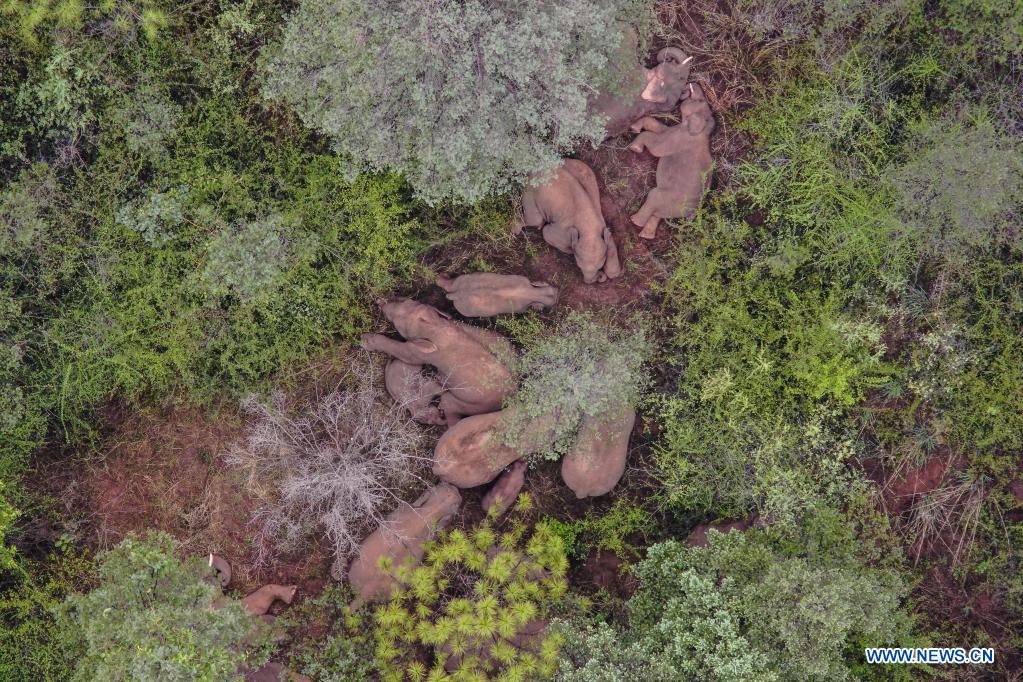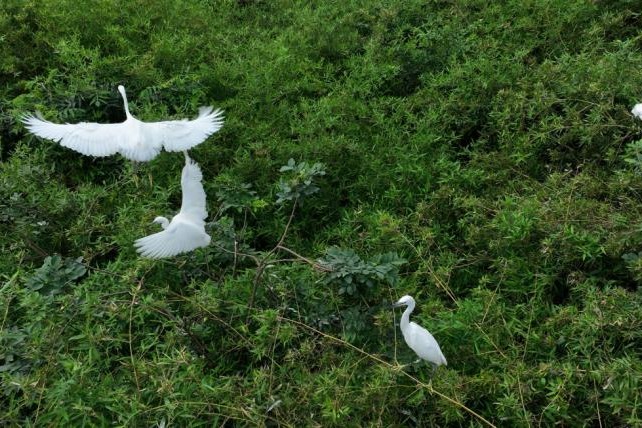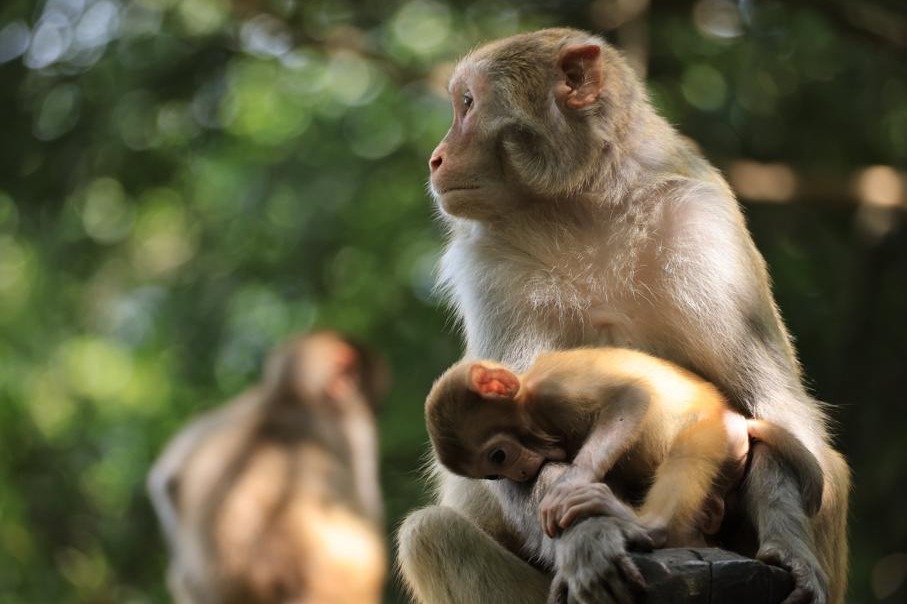Yunnan sees major growth in elephant population


As the major habitat of wild Asian elephants, Xishuangbanna Dai autonomous prefecture in Yunnan province has seen a significant growth in its population of elephants and other wild animals in recent decades, thanks to the joint efforts of the authorities and the area's residents.
In the latest survey of wild animals nearby the China-Laos border, cameras had captured images of several endangered wild animals including Asian elephants, leopards, jackals, bears and zibets.
In recent years, the prefecture has drafted more than 20 regulations and laws to further protect its environment and wildlife, which has contributed to the growing population of wild animals.
Commercial activities are now prohibited in all of the prefecture's nature reserves. Rainforests, the region's typical ecosystem, are also strictly protected and not allowed to be exploited or used as farmland.
The prefecture also made a stand against wild animal trafficking as well as the illegal trade in wildlife, and has achieved considerable results. In the past five years, no report of illegal hunting or attacks on elephants was recorded, according to the Xishuangbanna Forestry and Grassland Administration.
Between January and May of this year, the number of cases involving the illegal destruction of forest resources in the prefecture has declined by 76.6 percent compared with the same period last year.
All of the Asian elephants in Yunnan, the main habitat of the animal, live in the southern part of the province, which covers Xishuangbanna, and the cities of Pu'er and Lincang. Of the three, Xishuangbanna has the largest number of Asian elephants.
To protect the Asian elephant as well as other wildlife, the prefecture expanded the area of its nature reserves, which has nearly doubled from 24,000 hectares in the 1980s to 41,466 hectares now.
In 1996, a Wild Asian Elephant Valley was also established, which has served as the prefecture's biggest wild animal rescue center. So far, more than 1,200 animals have been saved at the center.
In 2008, China's first Asian elephant breeding base was also built in the valley. With a total investment of more than 7 million yuan ($1.09 million), the base has provided technical and professional support for the study of elephants.
A significant increase in the population of elephants is a reflection of these decades-long protection efforts. Listed as the top conservation species in China, the wild Asian elephant has seen its population grow from 175 in the 1970s to about 300 now.
According to Dong Yonghua, who has studied Asian elephants for 40 years at the Scientific Research Institute of Xishuangbanna National Nature Reserve, the growing number of elephants means there is a greater demand for living space for the species.
"About 25 years ago, elephants could be witnessed only in Xishuangbanna and Lincang. Now, Pu'er has also become one of their habitats," he said.
The prefecture invested 2.8 million yuan in an elephant monitoring and alert system in 2018. So far, the system has more than 200,000 registered users.
In Xishuangbanna's Menghai county, where residential areas are close to the nature reserves, a project was initiated last year in the village of Nanlanghe.
This project includes the construction of iron barriers as long as 2,363 meters and also the planting of food resources preferred by elephants, such as corn, sugar cane, Chinese banana and grass within a certain area nearby the village.
"So far, four elephants that used to visit local villages have been attracted to the area in the first half of this year," said Ma Jie, head of Menghai county forestry and grassland administration.
Thanks to the project, he said that insurance payouts for property losses due to elephants' activities also dropped sharply from 2 million yuan in the first half of last year to 30,000 yuan in the same period of this year.
Moreover, the prefecture has constructed several areas to provide additional food resources for elephants in recent years.
"A harmonious relationship between humans and elephants has been our goal, for which we will continue our efforts without hesitation," said Dao Jianhong, deputy director of Xishuangbanna Forestry and Grassland Administration.
Li Yingqing contributed to this story.
- Torrential rains cause flooding in Guangdong townships
- Xiamen artist captures fleeting wedding emotions on canvas
- Top court backs online consumers against fraud
- Humanoid robot for all: Even high schoolers can join in
- Chongqing drone show sets Guinness record
- Protected birds thrive in Yichun's wetlands





































